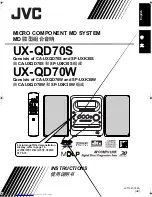
• The ANI/DNIS/Address data received from the Telco can have up to 10 digits.
• An extension Class of Service (PRG 20-09-02) determines whether ANI information is displayed.
• Refer to
Digital Trunk Clocking on page 1-211
for the specifics on how the system detects dial tone.
• The T1 Tie Line can be used for networking.
• The T1/PRI Interface provides Tie Line service. All programming parameters are the same as those
used for analog Tie Lines (except for the additional T1/PRI Interface settings).
• With an SL1100 - Expanded Port Package, up to 48 T1 trunks can be assigned.
• You can use T1 trunks in place of standard analog trunks. The procedures for placing and
answering calls are the same for both trunks.
• The T1/PRI Interface provides DID service. All programming parameters are the same as those
used for analog DID trunks (except for the additional T1/PRI Interface settings).
• SMDR can print trunk port names or received dialed number for ANI/DNIS or DID trunks. If enabled
in programming, DNIS digits can be printed on the SMDR reports instead of the trunk name.
• T1 trunks follow Tie Line toll restriction programming (PRG 34-01-05 and PRG 34-08).
• When using Fractional T-1s, the unit comes up with zero ports until PRG 10-03-06 is set to the
4/8/12/16/20/24 (auto) and then reset.
• If the number of ports are changed for a fractional T-1 in PRG 10-03-06, the trunk ports could be
reassigned if the numerical sequence would split or it could fit into an empty gap of trunk ports.
Examples:
The COIU is assigned for trunk ports 1~8 and 17~24 and the T-1 (12 ports) was assigned as ports
25~36, the number of T-1s change to eight ports instead of 12. The new trunk port numbers are
assigned as 9~16 because the eight ports can fit into the gap between ports 8 and 17 without
splitting the numerical port number sequence.
The COIU is assigned for trunk ports 1~8 and 17~24 and the T-1 (eight ports) was assigned as
9~16 and then the T-1 was changed from eight to 12 ports. The new trunk port numbers are
assigned as 25~36 because the port number sequence would have to be split to keep them within
the original number sequence (9~16) and splitting the numerical port number sequence is not
supported.
• Incoming calls on T1/ANI trunks can only follow PRG 22-11-01. They do not follow PRG 22-11-05
and PRG 22-11-06.
Default Settings
Disabled
System Availability
Terminals
All Terminals
Required Software
None
Required Component(s)
IP4WW-1PRIU-C1
Locally provided CSU/DSU
SL1100
ISSUE 2.0
1-726
T1 Trunking (with ANI/DNIS Compatibility)
T
Summary of Contents for SL1100
Page 2: ......
Page 3: ...Features and Specifications Manual A50 031169 003 NA ISSUE 2 0 ...
Page 171: ...5 Press Speaker key to hang up ISSUE 2 0 SL1100 Features and Specifications Manual 1 159 C ...
Page 218: ...2 Dial 724 SL1100 ISSUE 2 0 1 206 Dial Pad Confirmation Tone D ...
Page 741: ... Direct Inward Dialing DID ISSUE 2 0 SL1100 Features and Specifications Manual 1 729 T ...
Page 856: ...MEMO SL1100 ISSUE 2 0 2 26 Codes Tables ...
Page 862: ...MEMO SL1100 ISSUE 2 0 3 6 Features Availability by Software Revision ...
Page 863: ...MEMO ISSUE 2 0 SL1100 Features and Specifications Manual 3 7 ...
Page 864: ...Features and Specifications Manual NEC Corporation ISSUE 2 0 ...
















































